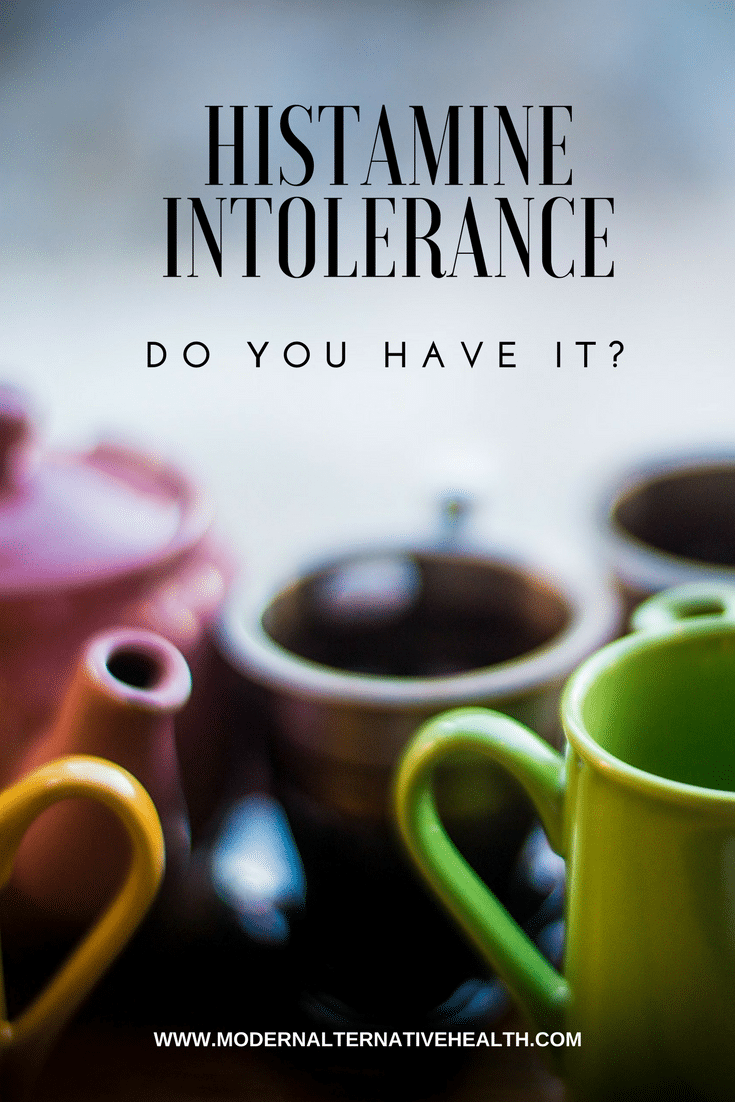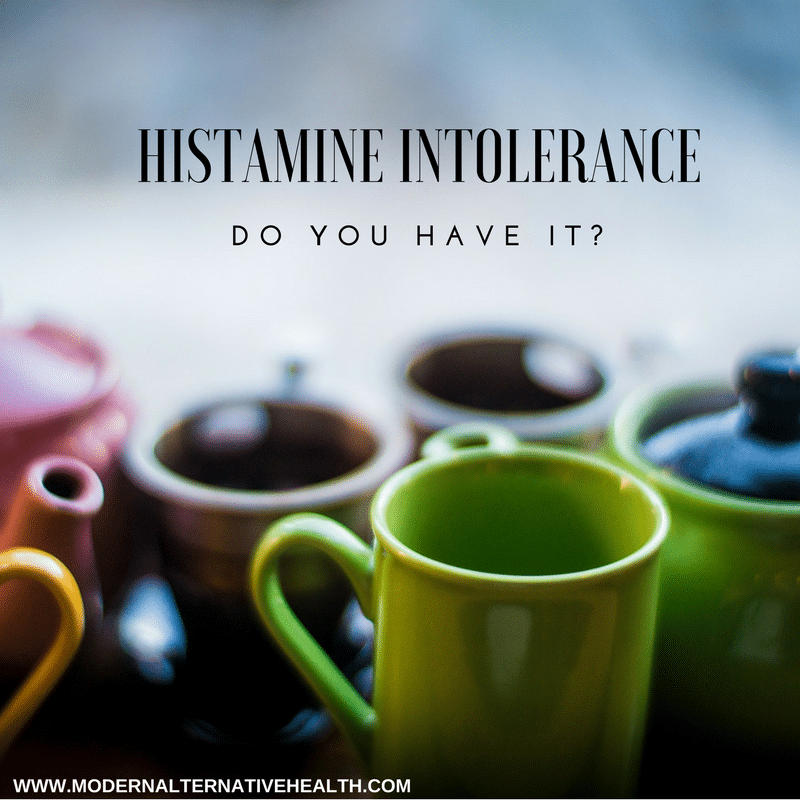Histamine intolerance is a relatively new health ailment on the scene, but it can be a very serious thing for some people.
By Contributing Writer Janine
What Is Histamine?
Histamine is a substance that is stored in our cells. It can be released during times when we’ve had an allergic reaction or if there is inflammation present in the body. Histamine is either stored in the body in mast cells — which are a type of white blood cell — or dissolved by enzymes that eat up histamine. It functions in the body in a variety of ways that include:
- Protecting against infection.
- Regulating the digestion of proteins.
- Regulating sleep and the function of your mind.
What Causes Histamine Intolerance?
Diamine Oxidase (DAO) is the enzyme that is responsible for the deactivation or storage of histamine. When the body loses its ability to properly produce DAO then histamine intolerance arises. There are many things that can contribute to the body’s loss of ability to produce adequate DAO.
The body is usually able to handle the elimination of histamine. But, when the body can’t, it becomes overloaded and then many different symptoms can manifest. It works sort of like a bucket with a hole in the bottom. Normally, you can keep putting water in the bucket and it will always drain out of the hole before spilling over the edge of the bucket. But if you begin to fill the bucket too quickly then the water will spill over the top. This is how the histamine in your body can build up and overflow. When there is too much histamine in the body your histamine bucket will overflow.
Symptoms of Histamine Intolerance
There are many ways histamine intolerance can manifest in the body. If you notice any of the following things occurring — especially if there is more than one — it would be worth exploring whether or not histamine intolerance is a factor for you.
- Itchy skin
- Hives
- Diarrhea
- Flushing of the skin
- Acid reflux
- Nausea
- Nasal congestion
- Cough
- Low blood pressure
- Dizziness
- Fainting
- Rapid heartbeat
- Migraines
- Insomnia
- Anxiety
- Memory retention issues
It seems like a laundry list of symptoms. But they can all be caused by histamine intolerance.
Causes of Histamine Intolerance
Gut Function
Many times a person’s intestinal health can be found to be the root cause of a person’s development of histamine intolerance. Conditions like Crohn’s Disease, IBS, leaky gut, colon resection, SIBO (small intestinal bacterial overgrowth), and some infections like H. Pylori can cause the loss of the body’s ability to properly deal with excess histamine.
Stress
Chronic stress is very bad for your body. In the case of histamine intolerance, if your body is under chronic stress the increased HPA (hypothalamic-pituitary-adrenal axis) activity in your brain will trigger your body to activate mast cells and produce excess histamine in response. This constant flow of histamine will build up over time and cause histamine intolerance.
Food
Eating the wrong foods for you can trigger the excess production of histamine, or they can block the body’s DAO enzymes. Foods that commonly cause issues for people are:
- Alcohol
- Slow cooked foods
- Leftovers
- Cured meats
- Fermented foods (kombucha, kefir, pickles)
- Foods that contain vinegar
- Dried fruit
- Citrus fruits
- Nuts
- Tomatoes
- Bananas
- Strawberries
- Preservatives and dyes
So it is important to limit these foods in non-severe cases. People who have more severe cases of histamine intolerance will have to completely eliminate some foods since they can cause dangerous anaphylactic responses in these people.
Genes
Your genes can play a part in whether or not your body can properly deal with histamine. Some people are genetically unable to keep histamine levels in check since variants on the DAO and/ or HNMT genes keep them from doing so. You can learn about your genetic profile by having a simple saliva test done.
Environment
Some people’s system becomes overloaded by things they encounter in their environment. These things can include:
- Seasonal allergens
- Chemicals
- Exposure to cleaning products and perfumes

Healing Plan
What can someone who has histamine intolerance do to heal their bodies and stop experiencing the side effects of high histamine? It will depend on the individual, but most people can greatly help their symptoms by following these steps:
- Eliminate consumption of alcohol.
- Eat a low histamine diet while keeping a food diary to track foods that cause a reaction.
- Reduce stress.
- Eliminate environmental allergens.
- Improve gut function.
Foods that are okay to eat while trying to get your histamine levels in check include:
- Fresh meats
- Young cheeses
- Eggs
- Vegetables
- Watermelon
- Apples
- Pears
- Mango
- Grapes
- Fresh herbs
- Coconut and almond milks
- Coconut and avocado oil
- Avocado
Some people may also want to talk to a professional about doing further genetic and blood testing to see whether their histamine intolerance is caused by the inability to produce adequate DAO. Food sensitivity testing may also be useful for people to assess whether or not the foods they eat are nourishing or hurting their bodies.
Some people may need to employ the use of anti-histamines in order to control their symptoms while they work on the tips above. These can be found over-the-counter at your local pharmacy.
Others may find relief using a combination of these natural remedies after speaking to their natural health practitioner:
- Quercetin (can help reduce histamine.)
- B-Complex Vitamin (can help with stress levels.)
- Juicing beets, celery, ginger, apples (can be healing for the gut and nourishing.)
- Magnesium (can help with getting the restful sleep your body needs to heal.)
Nettles are a powerful natural anti-histamine and can be used to make a nice herbal tea.
It could take a few months of actively working on histamine levels before seeing positive results. The key is to keep at it and not give up! Your body is working hard to fix the issue!
Do you find yourself with a list of symptoms that can’t be explained? Do you feel like you are just not yourself and should be feeling better?
SaveSave







I find that I may have seasonal allergies because i am constantly sneezing. I’ve been thinking about purchasing a product to improve my gut health recently so I will see how that goes.
Any testing available to see if you are having histamine intolerance? Many of these symptoms are the same symptoms for other disorders, and I don’t want avoid foods if there isn’t a need to,
Or will you always have a histamine reaction when you eat them, and that’s how you know? Thanks!!
Just be careful about any fermented foods, probiotics, or bone broth since all of these common foods that improve gut health also raise histamine levels!